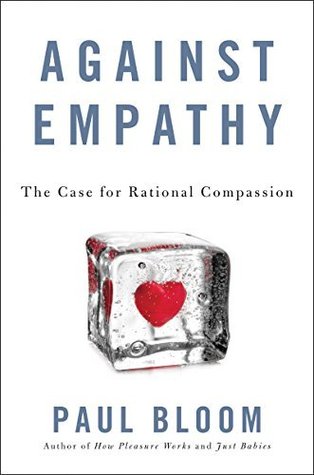Plainly, then, the salience of these cases doesn’t reflect an assessment of the extent of suffering, of their global importance, or of the extent to which it’s possible for us to help. Rather, it reflects our natural biases in who to care about. We are fascinated by the plight of young children, particularly those who look like us and come from our community. In general, we care most about people who are similar to us—in attitude, in language, in appearance—and we will always care most of all about events that pertain to us and people we love.
Welcome back. Just a moment while we sign you in to your Goodreads account.


